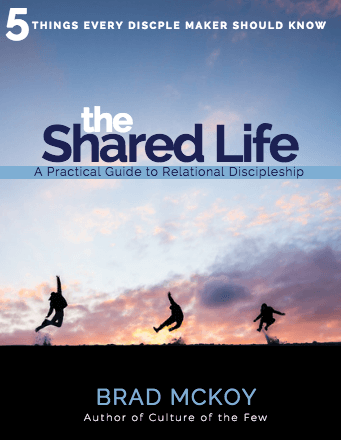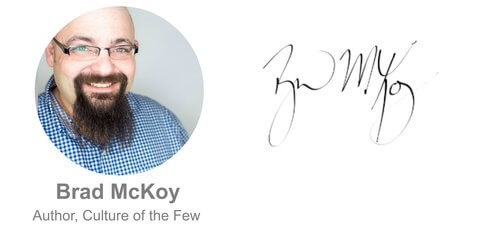BOUNDARIES AND BARRIERS
BOUNDARIES AND BARRIERS
“We need to establish some healthy boundaries.”
Have you ever experienced one of these conversations? Whether you were the initiator or the recipient, these chats are often difficult. In fact, I would say that many people are terrified by the thought of having an uncomfortable conversation with someone they are discipling. That is why it can seem easier to settle for the more distant, safe confines of programs and formulas.
The problem with this type of thinking, of course, is that the relational gap that keeps me from being hurt by people, also makes it difficult for me to impact them.
So what should we do?
Before we go on, I need you to know that I am not against establishing boundaries. I think they are imperative to building healthy long-term relationships! My problem is that most of what we call boundaries are actually barriers, and are often established as a reaction to something not going well.
Let’s look at how I am defining boundaries and barriers. Then we will look at how to make sure we are establishing the right things in our relationships.
Boundaries are established for the health of my heart and my relationships with others. I build boundaries because I value others and I want to make sure that pure love can grow.
Barriers are meant to keep other “unhealthy” people away from me. I build barriers when I am drained or afraid that I will be taken advantage of.
I have recently spent a great deal of time studying the Scripture and praying about this issue of establishing healthy boundaries. As I looked at how God established boundaries, I recognized a recurring theme. He seems to always establish them at the beginning, before there are problems.
The creation story is as much about boundaries as it is about creating. God separates light and dark, sea and sky, sea and land. In Proverbs 8, Wisdom said that He was present at creation when God gave the sea it’s limits and told it where it could go.
God establishes boundaries to keep things healthy, not to try and fix a mess.
This is a vital part of establishing healthy discipling relationships. If we wait until we are in the midst of unhealthy relationships to establish boundaries, it will most likely feel like we are trying to disconnect from people instead of grow in relationship with them.
Of course, God’s wisdom is greater than ours. Sometimes we do find ourselves in unhealthy relationships. When this happens, don’t panic. It is always better to correct things than to continue on, pretending that everything is okay. In correcting things though, let’s avoid constructing barriers, but rather try to establish the right kind of boundaries that will help life be healthy for you and for others.
What are some of the most important lessons you’ve learned about creating healthy boundaries instead of barriers? Leave a comment below. I would love to hear about your experiences.
Until next time, feel free to get ahead by downloading my Free eBook The Shared Life: A Practical Guide to Relational Discipleship.
This is 40 page tool I’ve written to share practical and implementable expressions of relational discipleship that will immediately empower you to start producing world changing disciples and experiencing life-giving relationships like Jesus did.
DOWNLOAD FREE SHARED LIFE EBOOK NOW!
Blessings,
Brad and his wife, Adriane, have spent over two decades pastoring churches in the United States with a focus on reaching the “un-churched”. In 2011, they moved to Grove City, PA with their daughter Abigail to pioneer Antioch Overflow Experiment (AOX), a community of simple churches with a mission to “disciple, equip, and release sons and daughters of the King to transform every sphere of society for the glory of God.” Follow him on social media@bradmckoy to stay connected to him and his family.


